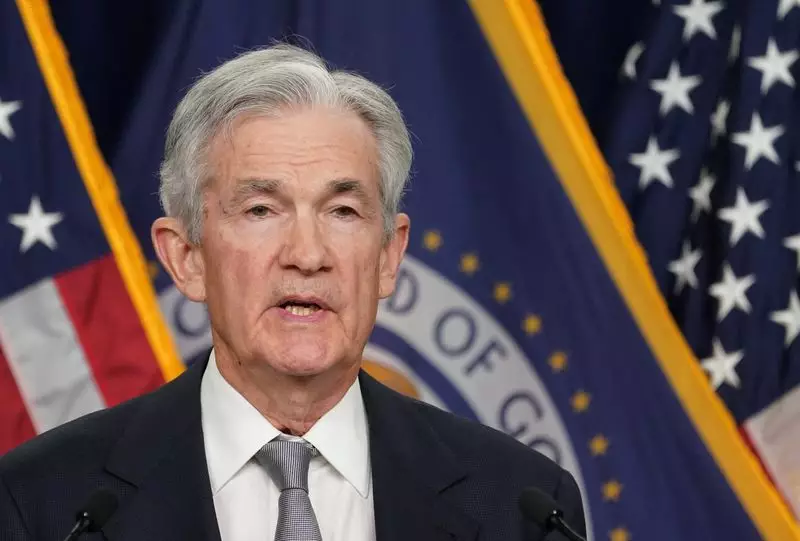In a recent interview, President-elect Donald Trump addressed a pivotal question regarding the future of Jerome Powell, the Federal Reserve Chair. With his term secured until May 2026, Trump made clear his intention to allow Powell to remain in his position, unequivocally stating, “I don’t” when asked if he would consider replacing him. This revelation signals a commitment to maintaining continuity at the helm of the Fed, potentially easing concerns among investors and economists who closely monitor the central bank’s direction.
Trump’s responses during the interview highlighted a nuanced understanding of his relationship with Powell. When pressed on whether Powell would leave his role if asked, Trump suggested that while he believed Powell might comply if given a direct order, the dynamics of their relationship would complicate any such scenario. This implies a delicate balance of power, where Trump recognizes Powell’s independence but also hints at possible influence over his actions should he choose to assert it.
The Historical Context of Their Relationship
The backdrop to this discussion is rooted in a complex history. Powell was first appointed Fed Chair by Trump in February 2018, and their tenure has been marked by notable friction over monetary policy, particularly related to interest rates. Trump’s public dissatisfaction led to repeated threats about Powell’s removal, underscoring a turbulent relationship that has straddled the line between expectation and confrontation. The appointment of a central bank leader traditionally insulated from political pressures exemplifies the tensions inherent in U.S. monetary policy.
Despite the previous hostilities, Trump’s recent assertions appear to signal a shift toward stability. With Powell having been reappointed by President Joe Biden in 2022, there is now a broader consensus on his role, emphasizing the need for nonpartisan continuity in the face of economic uncertainty.
Further complicating the issue is Powell’s own stance on his position. Clearly asserting his security, Powell remarked during a postelection press conference that the president lacks the legal authority to terminate his role as chair. This statement not only reaffirms the independence of the Federal Reserve but also serves as a reminder of the robust legal framework that protects its operations.
The dialogue surrounding Powell’s position highlights broader concerns about governmental influence over monetary policy, particularly as Trump prepares to take office once more. The independence of the Federal Reserve is vital to maintaining economic stability, and Powell’s tenure could be pivotal in navigating the intricacies of interest rates, inflation, and economic recovery.
As Trump assumes office, the interaction between his administration and Powell will likely be under intense scrutiny. With Trump advocating for lenient monetary policies, analysts will be keenly observing how this relationship evolves. Ultimately, a cooperative dynamic could yield positive outcomes for the economy, while any resurgence of past tensions may lead to unpredictability in economic policy.
In sum, Trump’s current stance presents an opportunity for enhanced stability within the Federal Reserve, allowing Powell to continue his work uninterrupted. The ramifications of this relationship will undoubtedly influence fiscal perspectives for years to come, making it essential to watch how this pivotal interaction unfolds in the coming months.

